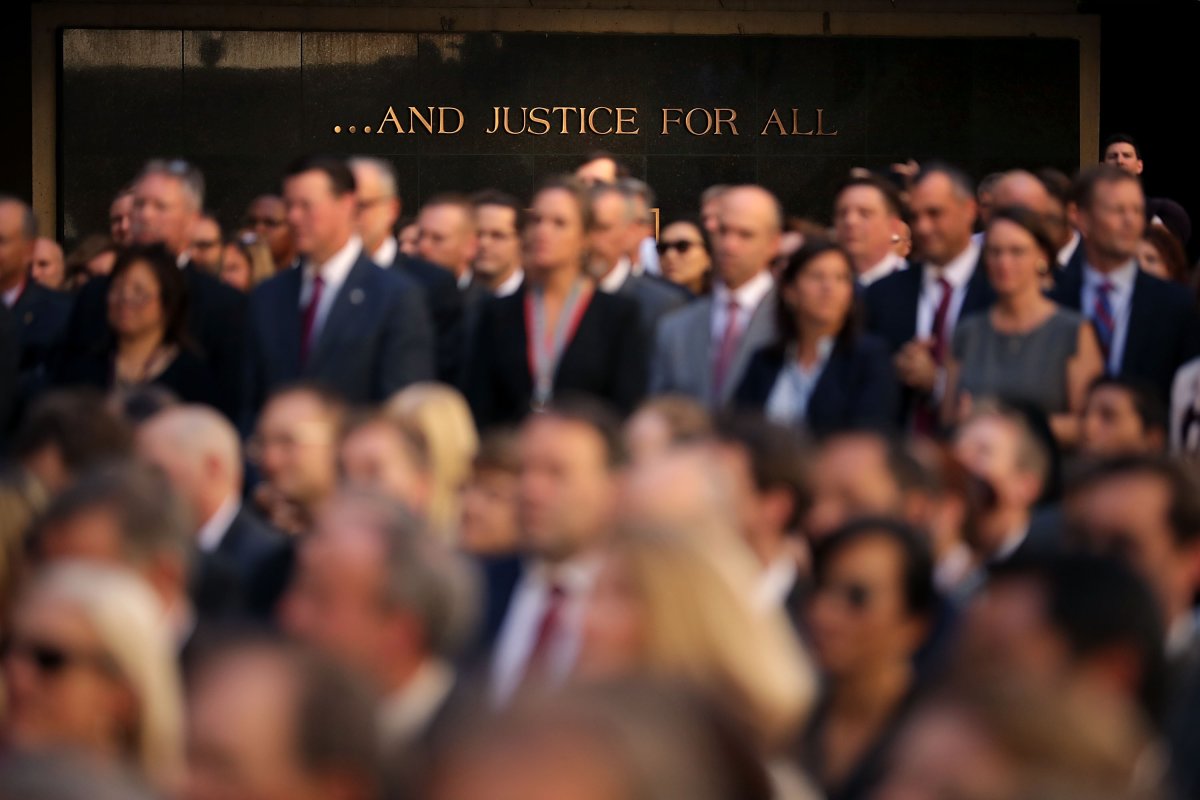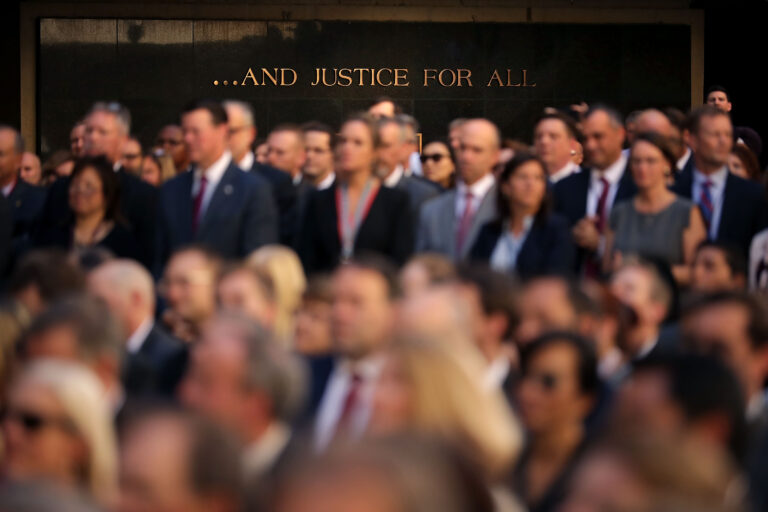President Donald Trump’s administration is targeting the federal workforce to cut back on costs, and employees within their probationary period may be the first to go.
Why It Matters
Trump’s Department of Government Efficiency has been looking to slash government spending. The administration has offered federal workers a buyout, providing eight months of severance pay for voluntary resignations.
The breadth of the layoffs is not yet clear, but probationary employees could be the first to be affected.
What To Know
A probationary employee is someone who was recently hired by a federal agency. A person who has been a long-serving employee but moved to a new position is also often considered in a probationary position.
The period is seen as a trial phase, or as Attorney Justin Schnitzer calls it an “extended job interview where you’re not just talking the talk but walking the walk every single day.”

Photo by Chip Somodevilla/Getty Images
“Far from being a mere bureaucratic hurdle, the probationary period serves as a critical filter in the federal hiring process,” Schnitzer wrote on the Fedelaw blog. It’s the government’s way of ensuring that only the cream of the crop makes it into the ranks of career civil servants.”
How long the probation period lasts depends upon the federal agency. Typically, however, they are about one or two years.
According to data viewed by Newsweek, as of March 2024, over 220,000 federal employees worked in their positions for less than a year. An additional 288,000 worked at their agency position for one to two years.
They work both within the United States and elsewhere.
The data did not have information on salaries and schedules. Pay is often determined by the department, and sometimes it is at a slight decrease to a tenured employee’s salary. According to the data, federal worker salaries range from less than $50,000 (8.1 percent of the people) to over $200,000 (3.1 percent of the people).
About 50 percent of federal workers are making between $50,000 to $109,999.
The federal government spends about 3 percent of its budget on compensation for federal employees.
People who are within their probationary period are protected from discrimination based on race, religion, sex, ethnicity, age and disability information. They are also shielded from any retaliation if they become a whistleblower for any governmental wrongdoings.
That said, probationary employees are able to be fired much easier than tenured employees based on performance or conduct. Probationary employees, however, are still entitled to a written letter or termination notice with a reason for the firing.
Probationary firings have already taken place in several federal agencies. The Department of Veterans Affairs announced last Thursday that it had dismissed more than 1,000 employees, including probationary employees who had worked at the agency for less than two years. On the same day, dozens of probationary workers at the Office of Personnel Management (OPM) were told they would be dismissed, according to the Associated Press.
OPM, though, did suggest that agencies do not have to fire all their federal employees who are still on probation, as a senior official previously told Newsweek.
Other departments like the Small Business Administration, the Centers for Disease Control and Prevention (CDC) and the Department of Energy have also seen cuts.
The Merit Systems Protection Board (MSPB), which hears most federal employee termination appeals, does not typically have jurisdiction over probationary appeals, according to Just Security. Probationary employees, however, can appeal their layoffs if it was based on partisan political reasons or if their rights were violated.
What People Are Saying
Attorney Justin Schnitzer in his Fedelaw blog: “The federal probationary period isn’t set in stone. It’s been the subject of ongoing debate and potential reform. Some lawmakers and policy experts are pushing for longer probationary periods for certain positions, arguing that more time leads to better hiring decisions. Others are advocating for stronger appeal rights for probationary employees.”
Everett Kelley, the president of AFGE, said in a statement about the upholding of Trump’s plans by a district court judge: “Today’s ruling is a setback in the fight for dignity and fairness for public servants … We continue to maintain it is illegal to force American citizens who have dedicated their careers to public service to make a decision, in a few short days, without adequate information, about whether to uproot their families and leave their careers for what amounts to an unfunded IOU from Elon Musk.”
White House press secretary Karoline Leavitt said last week: “We encourage federal workers in this city to accept the very generous offer.”
What’s Next
The American Federation of Government Employees said they are looking into “next steps” to fight the layoffs.
A federal judge last week, however, upheld the Trump administration’s plan to shrink the federal workforce. U.S. District Judge George O’Toole Jr. had issued an initial ruling a week prior pausing the initiative while he evaluated the parties’ legal arguments.
The Trump administration expects 5 to 10 percent of federal employees to accept Trump’s eight months of severance pay offer, Axios reported.


